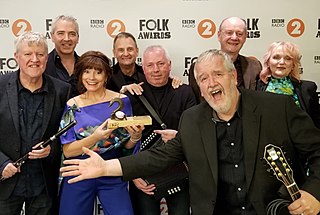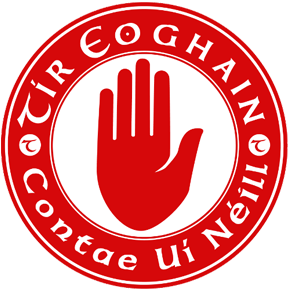The Field is a play written by John B. Keane, first performed in 1965. It tells the story of the hardened Irish farmer "Bull" McCabe and his love for the land he rents. The play debuted at Dublin's Olympia Theatre in 1965, with Ray McAnally as "The Bull" and Eamon Keane as "The Bird" O'Donnell. The play was published in 1966 by Mercier Press. A new version with some changes was produced in 1987.

Tom Berenger is an American actor. He was nominated for the Academy Award for Best Supporting Actor for his portrayal of the Staff Sergeant Bob Barnes in Platoon (1986). He is also known for playing Jake Taylor in the Major League films and Thomas Beckett in the Sniper films. Other films he appeared in include Looking for Mr. Goodbar (1977), The Dogs of War (1980), The Big Chill (1983), Eddie and the Cruisers (1983), Someone to Watch Over Me (1987), Betrayed (1988), The Field (1990), Sniper (1992), Gettysburg (1993), The Substitute (1996), Training Day (2001), and Inception (2010).

Brenda Fricker is an Irish actress, whose career has spanned six decades on stage and screen. She has appeared in more than 30 films and television roles. In 1990, she became the first Irish actress to win an Academy Award, earning the award for Best Supporting Actress for the biopic My Left Foot (1989). She also appeared in films such as The Field (1990), Home Alone 2: Lost in New York (1992), So I Married an Axe Murderer (1993), Angels in the Outfield (1994), A Time to Kill (1996), Veronica Guerin (2003), Inside I'm Dancing (2004) and Albert Nobbs (2011).
Events in the year 1972 in Ireland.

Into the West is a 1992 Irish magical realist film about Irish Travellers written by Jim Sheridan and David Keating, directed by Mike Newell, and stars Gabriel Byrne and Ellen Barkin.

The Ireland international rules football team is the representative team for Ireland in international rules football, a compromise between Gaelic football and Australian rules football. The team is made up of Irish players from the Gaelic Athletic Association and Australian Football League.

Watermelon is a 2003 television film directed by Kieron J. Walsh and starring Anna Friel, Jamie Draven, Ciarán McMenamin, Sean McGinley, and Brenda Fricker. It was released on 16 April 2003 on channel ITV. The screenplay is by Colin Bateman. The film is inspired by the novel of the same name by Marian Keyes. It is a lighthearted Irish drama following the troubles of a young couple when he finds out his beloved is carrying another man’s baby.

Dervish is an Irish traditional music group from County Sligo, Ireland which has been described by BBC Radio 3 as "an icon of Irish music". They were formed in 1989 by Liam Kelly, Shane Mitchell, Martin McGinley, Brian McDonagh, and Michael Holmes and have been fronted by singer Cathy Jordan since 1991. They represented Ireland in the final of the Eurovision Song Contest 2007, singing a song written by John Waters and Tommy Moran. In 2019 they released an album on the US Rounder Records label called The Great Irish Song Book featuring a selection of classic Irish songs sung by a number of well known singers including Steve Earle, Andrea Corr, Vince Gill, Kate Rusby, Imelda May, Rhiannon Giddens, The Steel Drivers, Brendan Gleeson, Abigail Washburn, and Jamey Johnson. In 2019 they received a lifetime achievement award from the BBC.

John Deery is a British-Irish award-winning film and television drama director, screenwriter and producer.

Conspiracy of Silence is a British drama film set in Ireland and inspired by real events. The film challenges celibacy and its implication for the Catholic Church in the 21st century.

The Butcher Boy is a 1997 Irish black comedy film directed by Neil Jordan. The film was based on Patrick McCabe’s 1992 novel of the same name and McCabe co-wrote the screenplay with Jordan.
Seán McGinley is an Irish actor. He has appeared in about 80 films and television series.

John Kavanagh is an Irish actor who has acted on the stage, in over twenty films including Cal (1984), Braveheart (1995) and Alexander (2004), and on television. Most recently, he is known for his portrayal of The Seer in the History Channel series Vikings. He has received a number of accolades, including a Drama Desk Award nomination in 1989 for his role in a revival of Juno and the Paycock.

Phelim Drew is an Irish actor. His credits include My Left Foot: The Story of Christy Brown (1989), Into the West (1992), Sharpe's Battle (1995), The Nephew (1998), Angela's Ashes (1999), Bloom (2003), King Arthur (2004), The Escapist (2008), Val Falvey, TD (2009), Ripper Street (2014), Clean Break (2015), The Drummer and the Keeper (2017), Dead Still (2020), Fair City (2021), and Tales from Dún Draíochta (2022).
The 9th Irish Film & Television Awards took place on Saturday 11 February 2012 at the Convention Centre Dublin (CCD), honouring Irish film and television released in 2011.

Resurrection Man is a 1998 Irish extreme horror period drama film, set specifically in Northern Ireland, directed by Marc Evans with a screenplay written by Eoin McNamee based on his novel of the same name. The story is loosely based on the real-life "Shankill Butchers", an Ulster loyalist gang in 1970s Belfast who conducted random killings of Catholic civilians until their leader, Lenny Murphy, was assassinated by a Provisional IRA hit squad.

The Tyrone county football team represents Tyrone GAA, the county board of the Gaelic Athletic Association, in the Gaelic sport of football. The team competes in the three major annual inter-county competitions; the All-Ireland Senior Football Championship, the Ulster Senior Football Championship and the National Football League.













